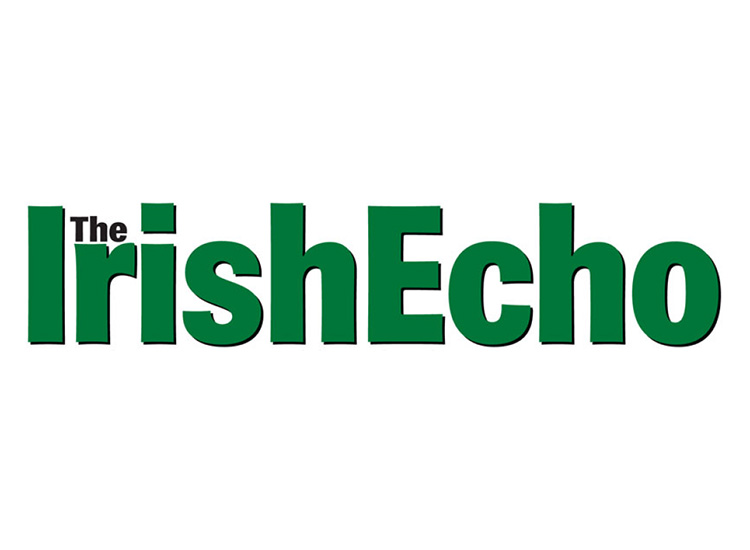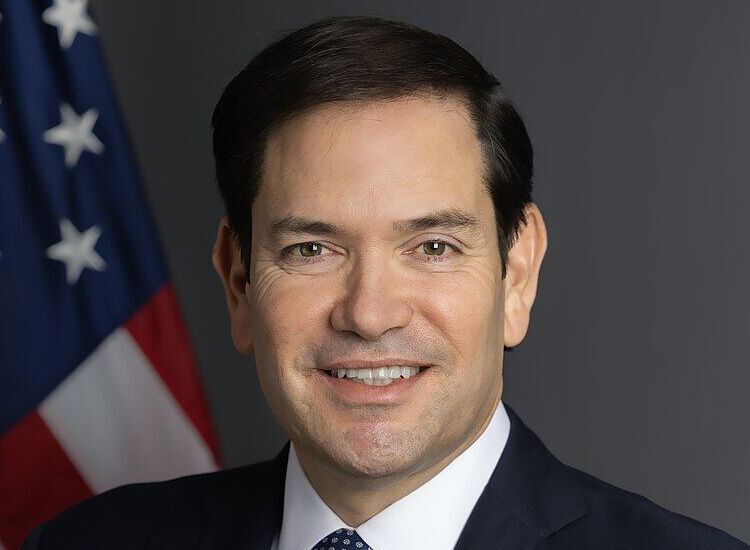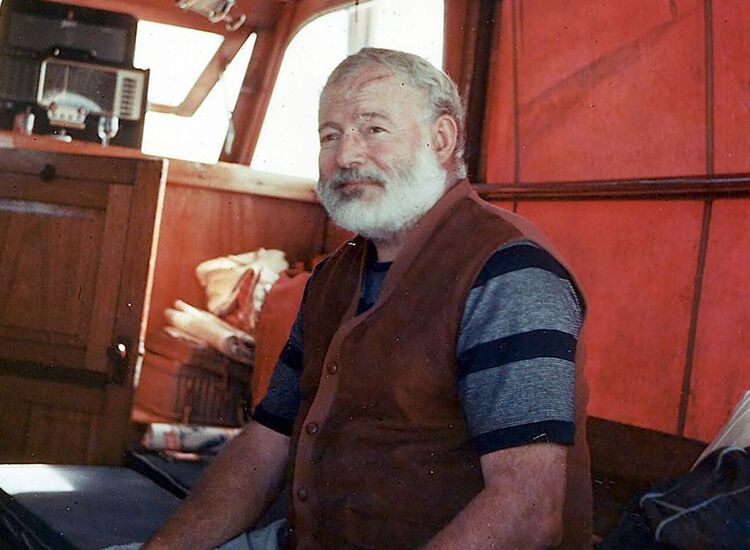In December 2015, Tom Moran was presented by President Michael D. Higgins with the Irish Presidential Distinguished Service Award for his work on peace and reconciliation and development.
By Orla O’Sullivan
He was not a great consumer of the arts, but Tom Moran, the self-made financier from Staten Island, was a great contributor to Irish arts, without whom many cultural organizations would not be as strong as they are and 1st Irish probably not the major festival it has become.
Moran, who died last month at age 65 after a brief illness, gave widely both in his own right and through the corporate sponsorship of Mutual of America, the Fortune 500 company of which he was chairman and, until two years ago, chief executive.
He boosted 1st Irish to another level, substantially supported the Irish Arts Center and Irish Repertory Theatre in their rebuilding campaigns, made the Park Avenue penthouse of Mutual of America available for fundraisers including those of Origin Theatre Company and Fallen Angel Theatre Company, and in other ways helped put the Irish on the stage.
George Heslin met Moran 13 years ago, a few years after founding Origin and a couple of years before launching its annual theatre festival, Origin’s 1st Irish Theatre Festival.
“The festival was going to go ahead, but Tom’s support put the festival up there as a major cultural event,” Heslin told the Echo.
Moran laid on the press launch and later the annual fundraising gala, provided board members with serious business acumen from his giant insurance firm, and contributed personally. Additionally, Moran’s niece Freya Pitland, now 26, has long led the drive to win young theatre supporters.
Moran wasted no time in backing 1st Irish, telling Heslin, “Call me tomorrow,” the day after the two were introduced by Lorraine Turner, now head of the Northern Ireland Bureau in New York.
Moran was very active in the Peace Process, as documented by the Echo upon his passing.
Heslin said Moran was immediately “very interested in the concept of 1st Irish,” which echoed his work in the political sphere.

Aedín Moloney, founder of Fallen Angel Theatre Company.
The community-based festival brings to the U.S. new Irish plays from Ireland, North and South, and from across the political divide.
Yet, for all his support of theatre, it was often hard to get Moran into one. Urged by Heslin to attend 1st Irish plays Moran would always say, “I’m there in sprit.”
He frequently came in person to Origin’s annual gala, lending his high-profile but low-key support—as he did this year on May 14, less than three months before his death.
Asked in casual conversation with this reporter, “Do you go to many shows?” he replied unapologetically and matter-of-factly: “No.”
Others echoed this. “While he was a great music lover and a fan of the Center, by his own admission Tom was not a culture vulture and to our knowledge never attended our programming,” said Aidan Connolly, executive director of the Irish Arts Center.
Moran’s temperament certainly was not that of the stereotypically effusive theatrical type: he did not even speak for the first year or two of school, he recalled in a 2008 interview with Irish America magazine.
Nor did he take the mike at Origin galas, though he was easy and unassuming one on one—for example, readily agreeing when asked if I could temporarily share his reserved table at the last gala. (The relatively young man seemed well.)
Maybe in earlier years Moran was more inclined to see plays, or maybe the material had to overlap with his political interests and image of Ireland.
Ciarán O'Reilly selected for mention a play sympathetic to the republican cause, when
writing on behalf of himself and Charlotte Moore, co-founders of the Irish Rep, in memory of Tom. “Many a night he and his wife Joan sat in our seats and laughed and cried and cheered us on,” O’Reilly recalled.
“One of our favorite moments with Tom at our theatre was following a production of Brian Friel’s ‘Freedom of the City.’ This intense drama told the story of the march in Derry in 1972 where a peaceful protest ended up in the deaths of innocent civilians. After the play I found Tom sitting in his seat and asked if he would like to come and meet the actors. With tears in his eyes, he gently said no. ‘I don’t think I’m ready for that.’
“The story he had witnessed was very close to the bone of a man who gave so much time and energy to bring peace to Northern Ireland.”
Moran’s maternal grandmother was an O’Neill from Fermanagh, while his father’s forebears fled the constabulary in Tipperary several generations back.
Bill Flynn, an earlier chief executive of Mutual of America, got Moran involved in the North. Flynn was CEO when Moran started at the firm, ferrying documents to him—a lowly role, but a big step up from his first job of janitor at 14 in school. He later got a mathematics degree at night and in his last years was chancellor of Queen’s University in Belfast.
Moran ensured every one of his employees was involved in philanthropy, volunteering or donating, and the firm set a high bar, for example, giving $25,000 in one recent year to the Rep’s renovation.
The IAC’s Connolly said, “Tom contributed $50,000 personally, matched by Mutual of America, and will be remembered as part of our Centenary Circle [$100k+ donors] in the new building.”
The firm hosted fundraising galas for the IAC, which Origin’s Heslin said might cost $80,000, “and he gave $10,000 to $12,000 every year as well.”
As if that wasn’t enough Moran chipped in another $5,000 on the spot at last year’s gala, with a vaguely rueful smile, when pressed by impassioned auctioneer Pat Tully.
Four years ago, Irish Central listed Moran’s net worth at $1.1 billion.
However, the Rep’s O’Reilly noted, “Tom Moran thought little of money or materials.” He remembered one afternoon a couple of years ago when he and Moore visited Moran at his spacious office, bedecked with his eclectic collection of art mixed with rock ’n roll memorabilia.
“Charlotte gasped at an original print of ‘The Band’ in Woodstock 1969. ‘Do you like the Band?’ asked Tom. ‘I love the Band,’ said Charlotte. The next day a package arrived. ‘The Band’ is now hanging in our office.”
Although successors at Mutual of America continue Moran’s legacy of supporting Irish arts, he personally is greatly missed by those we contacted. Among them was Aedín Moloney, founder of Fallen Angel, who said he believed in her all-women Anglo/Irish theatre production company. "I was heartbroken to hear of Tom Moran's passing,” Moloney said. “He was a great friend and mentor to me for the past 15 years.”
The man who said he learnt a lot from career janitors would probably cringe to hear his praises sung. Nonetheless, as Heslin said, “Tom was extraordinary, no doubt about it.”








